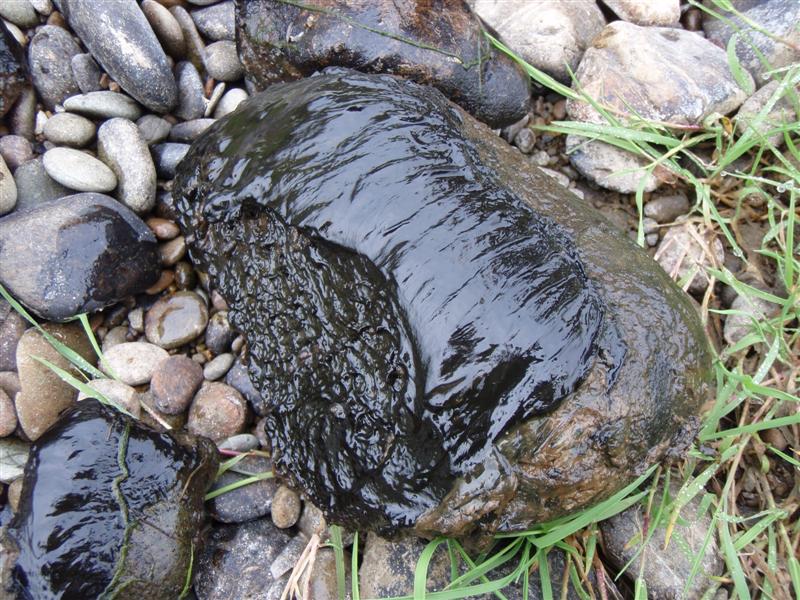Cyanobacteria levels on the rise
News
Example of cyanobacteria mat

2017-03-16T04:30:00 Pacific/Auckland
Update 27.04.2017
Alerts remain in place for the Mataura River at Mataura Island and the Waimatuku Stream at Riverton Highway. All other cyanobacteria alerts have been lifted.
Update: 04.04.2017
As part of our regular water quality monitoring, toxic algae was identified in the Waimatuku Stream. Levels of cover are still to be confirmed, but people and animals, in particular dogs, should avoid contact with cyanobacteria mats and stay clear of affected areas.
Update: 22.03.2017
Additional monitoring has also found the toxic algae further down the Mataura River at the Mataura Island Bridge.
Date: 16.03.2017
Monitoring carried out by Environment Southland has shown increased abundance of benthic cyanobacteria (bluegreen algae) in a number of rivers, the latest being the Mataura River at Gore.
Earlier this week, benthic cyanobacteria were found in reaches of the Hamilton Burn around Affleck Road and the Upukerora River around the Te Anau-Milford Road.
Benthic cyanobacteria usually occur as dark brown/black mats which grow attached to rocks in the river or accumulate on the surface in shallow, slow-flowing areas. They often have a strong, musty smell.
People and animals, in particular dogs, should avoid contact with cyanobacteria mats and stay clear of affected areas.
Environment Southland's freshwater & marine science leader Nick Ward says it's important people know what to look out for, as more cyanobacteria mats could continue to develop and may be present in other rivers if the warm, calm spell continues.
The current warm weather and low river flows mean it's prime conditions for cyanobacteria. Environment Southland isn't able to monitor everywhere, so staying vigilant is key.
Public Health South medical officer of health Dr Derek Bell says cyanobacteria can produce toxins that are harmful to people and animals if swallowed or through contact with skin. Boiling water does not remove toxins and drinking of the water should be avoided at all times.
Exposure to cyanobacteria may cause symptoms such as skin rashes, nausea, tummy upset and tingling and numbness around the mouth or tips of fingers, he says.
If you experience health symptoms after contact with contaminated water, visit a doctor immediately. Animals that consume cyanobacteria should be taken to a vet immediately.
Groundwater takes for stock water are unlikely to be affected by cyanobacteria.
Environment Southland monitors cyanobacteria monthly at a number of sites across Southland and the public will be advised of any changes in water quality that are of public health significance.
For further information, go to http://www.es.govt.nz/services/environmental-monit...

Example of cyanobacteria mat